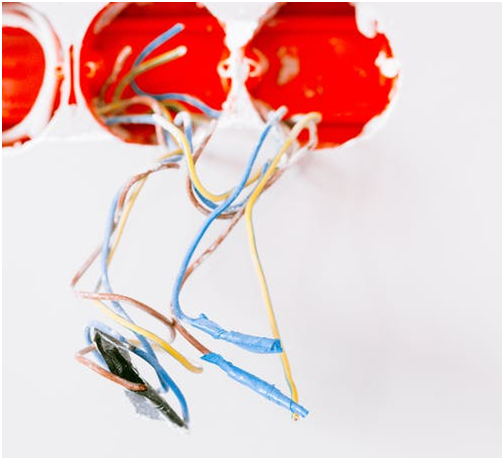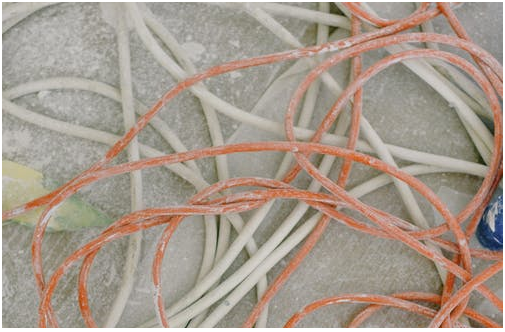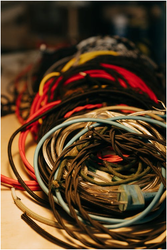Answering a Few Common Questions About 6 AWG Wire
23rd Jan 2022
If you’re looking for 6 AWG wire but you’re not sure exactly what you need yet, you might have a few questions that need answering before you can reasonably proceed.
While we don’t aim to take the spot of a qualified electrical engineer, we do offer a variety of high quality, American-made electrical cable, and wire, including but not limited to general building wire, marine battery cable, welding cable, instrumentation, and alarm cable, and many other types of specialty electrical cable.
Of course, the specialization of the wire itself has little to do with its gauge, so let’s get down into the trenches and field some of the most commonly Google questions about 6AWG wire.
What Is the Thickness of 6 Gauge Wire?
American Wire Gauge, or AWG, which is also infrequently known as Brown & Sharpe Wire Gauge, is a logarithmic scale for measuring the diameter of round, nonferrous, electrically conductive wire.
The diameter of the conductors themselves, in 6 AWG, is constant at .162 inches which is also 4.1148mm. The cross sectional area, which affects voltage rating and current carrying capacity, is 13.3mm2.
While these numbers can be considered constants for 6 AWG wire, it is important to remember that the total diameter - or outside diameter, OD - of a wire, may be higher, depending on the specific type of insulation used. For example, our 2000V, 6AWG DLO has an OD of .362”, substantially wider than the internal wire diameter.
What Is Bigger: 8 AWG or 6 AWG Wire?
One of the most important things you need to know about American Wire Gauge is that it is an inverse metric - that is to say, larger numbers correspond to smaller wires.
Therefore, 6 AWG wire is thicker than 8 AWG wires, although instinct would indicate otherwise. Consider 6AWG wire, with an internal diameter of .162 inches, against 8 AWG wire, with an internal diameter of .1285 inches. It’s a small difference, but one that impacts current carry capacity, voltage rating and resistivity, all of which directly impact a given wire’s suitability within any given application.
In short, 6 AWG is larger than 8 AWG wire.
What Is 6 AWG Wire Commonly Used for?

One of the most common building wire gauges is 8 AWG, because it can be used for residential wiring and for the installation of a wide range of appliances. However, 6AWG wire is commonly used for wiring large home appliances that draw a lot of power.
Another area in which 6AWG wire is commonly used is in vehicle starting applications, such as in the form of battery leads.
However, despite these observations, it is important to note that this should be taken as a guideline only. While 6AWG is commonly used in the above manners, only the specific conditions of your unique situation can give you a definite answer.
The size wire you will need - as well as any other attributes necessary for the job - depends on what you will be wiring, where you will be wiring it, the length of wire you will use, and the voltage and amperage ratings of the wire.
How Many Amps Can 6 AWG Wire Carry?
While it is common for 6 AWG wire to be able to carry about 55 amps, it is important to recognize that amperage rating is not the only important factor in determining the suitability of an electrical wire to a given purpose.
In addition to amperage rating, you must also consider voltage rating (which takes into account current and resistance) as well as any other unique features of the wire, such as whether it is single-stranded or braided or has a unique type of insulation.
What Do the Insulation Codes Mean?
Building wire and cable may come with a variety of different insulation types, including but not limited to some of the following:
●XLP: Cross-linked polyethylene insulation, this type of wire is resistant to cracking, ozone, abrasion, solvents, and a wide range of other adverse environmental conditions.
●THHN: Thermoplastic, high-heat resistant, nylon coated wire.
●THHW: The same as above, but suitable for use in wet (or dry) locations.
●NM: Non-metallic (sheathed) cable, which is typically used as a form of wire shielded against EMI.
●UL: Not a wire code, this stands for Underwriters’ Laboratories, a global organization that providers certifications for many different types of products, including electrical wire and cable.
What Specialty Types of 6 AWG Wire Are There?
There are many different types of specialty wire that we sell here at EWCS Wire, but the two many types of 6 AWG wire you will come across here, in addition to general building wire, are:
●Marine-grade electrical cable: Marine-grade electrical cable is made up of many small electrical conductors in order to remain and flexible as possible. Also, it is made with individually tinned copper conductors, as the tinning process helps to insulate the conductors, protecting them against the ravages of corrosion. Since marine environments will often cause the cables to be exposed to oils, it is valuable for marine-grade electrical cables to be finished with insulation that is gasoline and oil-resistant.
●Welding cable: Welding cable, like marine cable, is made with a large number of individual strandsin order to be as flexible as possible. It is also finished with highly durable insulation that should protect it against oil and gas, high temperatures, abrasion, acids, and alkali materials. In addition, welding cable insulation should be weather and UV-resistant, making it suitable for use outdoors. For these reasons, welding cable is also often rated for use as solar cable (A.K.A. photovoltaic or PV cable) as well as for generators, inverters, and battery cable.

Contact Us!
Whether you are looking for wire to support electrical infrastructure onboard a vessel or wire for general commercial or industrial applications, it is vital to use the right wire for the job, as well as to follow the prescriptions of the NEC, or National Electric Code.
Take a look through our collection of specialty wire and cable and get in touch with us at 800-262-1598 or by email at Sales@EWCSWire.com.

